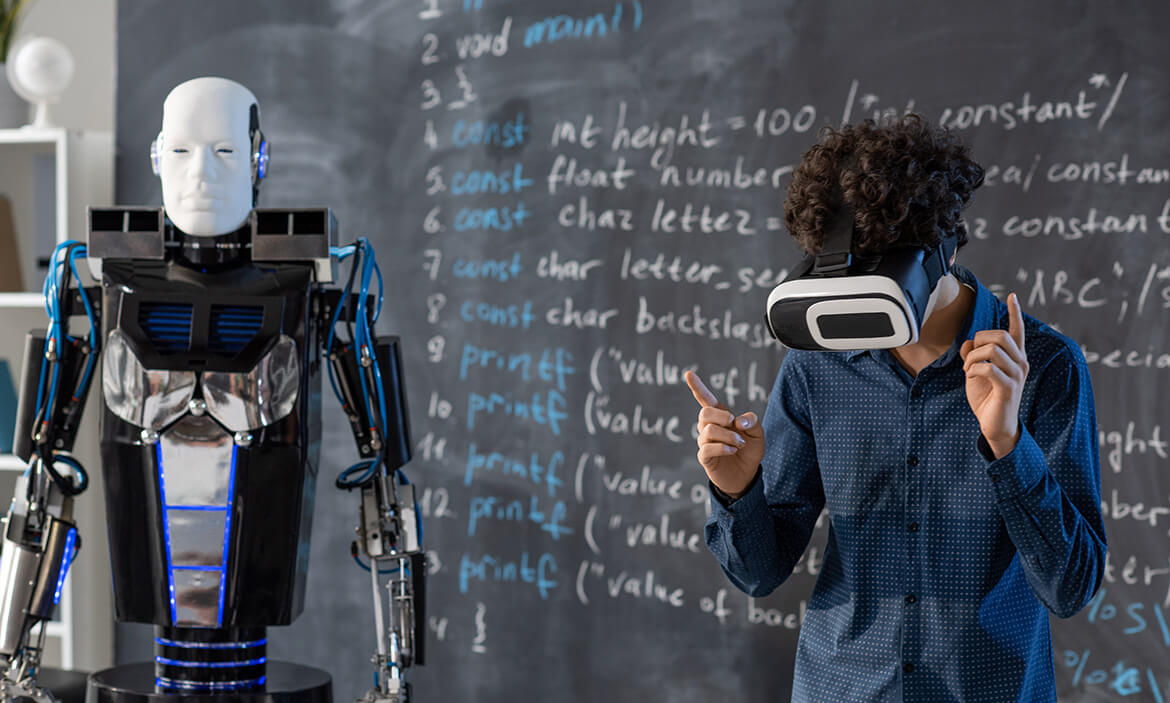Accelerating Clinical Trial Translation with AI-Powered Human Expertise
Ensure faster, more accurate, and regulatory-compliant translations for global clinical trials with Sesen’s hybrid AI-human workflows.
Why Clinical Trial Translation Needs Innovation
As clinical trials become increasingly global in scope, the demand for high-quality multilingual translation has never been greater. Sponsors, CROs, and life sciences organizations are enrolling diverse patient populations across multiple regions, requiring precise localization of clinical content into dozens of languages. From patient-facing ICFs to regulatory submissions, every word must be clear, culturally appropriate, and compliant with local regulations.
Despite this growing need, clinical trial translation faces persistent challenges—tight startup timelines, evolving regulatory standards (e.g., EMA, FDA, PMDA), and the critical need for linguistic precision in therapeutic and technical terminology. These factors often create bottlenecks, risking trial delays or compliance issues.
Artificial Intelligence is redefining how clinical translation is approached. When strategically integrated into the workflow, AI technologies—such as machine translation post-editing (MTPE), translation memory automation, and context-aware terminology extraction—significantly accelerate turnaround times while maintaining accuracy and consistency across document sets.
At Sesen, we combine the speed and scalability of AI with the deep subject-matter expertise of professional medical linguists. Our AI-assisted, human-verified workflows are purpose-built for life sciences, delivering faster, cost-effective translations without compromising on regulatory compliance or linguistic integrity. This hybrid model enables seamless multilingual clinical trial execution from protocol development to final submission.
The Role of AI in Clinical Trial Translation
AI is rapidly transforming the clinical trial translation landscape by streamlining traditionally time-intensive workflows. At Sesen, we strategically integrate artificial intelligence to complement human expertise, accelerating the localization of complex clinical content while preserving the linguistic precision and regulatory rigor required in life sciences. This hybrid approach enables faster, more consistent, and scalable translation workflows tailored to the needs of global clinical trials.
AI Applications in Clinical Translation Workflows
Machine Translation + Post-Editing (MTPE)
Neural machine translation engines, trained on life sciences corpora, generate initial drafts which are then refined by expert linguists to meet regulatory, clinical, and patient-facing standards.
Automated Content Pre-processing
AI tools extract and structure source content from complex file formats, align terminology with pre-approved glossaries, and flag inconsistencies before translation begins—reducing human error and improving processing speed.
Translation Memory and Version Control
AI-enhanced translation memory systems identify previously translated content across versions and documents, ensuring reuse of validated language for consistency across study phases and countries.
AI-Assisted Quality Assurance
Automated QA checks scan for errors in terminology, formatting, numerical accuracy, and regulatory compliance, providing a second layer of review alongside human QA.
Benefits of AI-Enhanced Translation Workflows
Speed and Cost Efficiency
AI enables accelerated turnaround for clinical trial documents—reducing timelines for multilingual startup and submissions without compromising quality.
Consistency Across Multi-Country Studies
Centralized terminology and translation memory management supported by AI ensures linguistic consistency across study documents and target languages.
Scalable Solutions for High-Volume Trials
From global phase III trials to decentralized studies, AI helps scale translation output efficiently, supporting simultaneous delivery across multiple geographies and languages.
By embedding AI into our clinical translation solutions, Sesen delivers intelligent automation where it matters—and human expertise where it counts—ensuring accurate, regulatory-aligned content for every stage of your trial.
Sesen’s Hybrid Translation Approach
Sesen’s clinical trial translation services are powered by a proprietary hybrid model that blends the efficiency of artificial intelligence with the precision of human medical linguists. Designed specifically for life sciences, our approach optimizes speed and accuracy across multilingual trial documentation while maintaining full regulatory compliance.
AI + Life Sciences Linguists
Our workflows leverage cutting-edge language models to streamline initial translation output, which is then refined by native-speaking translators with deep expertise in therapeutic areas, clinical operations, and regulatory terminology.
SesenGPT: Domain-Tuned AI for Life Sciences Translation
At the core of our hybrid approach is SesenGPT, our proprietary large language model built on open-source LLMs and fine-tuned specifically for life sciences translation. Hosted in a secure, HIPAA-compliant AWS environment, SesenGPT is trained on clinical, regulatory, and scientific data to support high-accuracy machine translation across therapeutic areas. This model delivers domain-aware linguistic output optimized for medical terminology, reducing post-editing time and increasing consistency across multilingual clinical trial documentation.
Human-in-the-Loop (HITL) Review
All AI-assisted translations undergo rigorous review and post-editing by qualified medical linguists to ensure contextual accuracy, terminological consistency, and alignment with region-specific regulatory standards.
Clinical PMs and QA Oversight
Every project is supported by dedicated Clinical Project Managers and QA specialists who oversee end-to-end workflows, conduct final quality checks, and manage version control across multilingual document sets.
Real-Time Terminology and Context Validation
Our hybrid system continuously cross-references approved glossaries, study-specific terminology, and therapeutic context in real time—ensuring accurate and compliant translations, even across evolving trial phases.
By combining linguistic intelligence with scalable automation, Sesen enables life sciences clients to confidently deliver accurate, audit-ready translations that meet the demands of global clinical research.
Clinical Trial Materials We Translate
Sesen provides expert translation and localization of all core and supporting documentation required throughout the clinical trial lifecycle. Our hybrid AI-human model ensures speed, accuracy, and regulatory compliance for high-volume, multilingual clinical content. Below is a representative list of clinical trial materials we routinely translate for pharmaceutical companies, CROs, and medical device sponsors:
Clinical Study Protocols (CSPs)
Translation of detailed study plans, including objectives, methodology, statistical design, and operational logistics.
Investigator’s Brochures (IBs)
Multilingual adaptation of clinical and nonclinical data summaries to inform investigators about investigational products.
Informed Consent Forms (ICFs)
Patient-facing translations written in plain language to support global ethics compliance and participant comprehension.
Case Report Forms (CRFs)
Translation of data collection instruments for consistent reporting across trial sites and regulatory jurisdictions.
Patient Diaries and ePROs
Localization of traditional and digital patient-reported outcome instruments to capture accurate data in native languages.
Clinical Study Reports (CSRs)
Accurate translation of final trial results submitted to health authorities for product approvals.
Ethics Committee Submissions
Timely, compliant translation of documentation for institutional review boards and independent ethics committees.
Regulatory Authority Correspondence
Professional translation of communications and responses submitted to regulatory bodies (e.g., FDA, EMA, PMDA).
Labeling and Packaging for Clinical Trials
Multilingual labeling and packaging content tailored to country-specific guidelines and patient safety requirements.
Safety Reports and Adverse Event Forms
Translation of serious adverse event (SAE) reports, pharmacovigilance documentation, and risk mitigation protocols.
All translations are handled by medical linguists with therapeutic area specialization and verified through our AI-assisted quality assurance pipeline to ensure linguistic accuracy and regulatory readiness.
Regulatory and Quality Assurance
At Sesen, every clinical trial translation is governed by a rigorous quality framework that aligns with international regulatory and industry standards. We combine AI-enabled efficiency with validated QA processes to ensure every deliverable meets the highest expectations for accuracy, traceability, and compliance.
Regulatory Compliance Across Global Markets
Our clinical translations are fully aligned with the requirements of major regulatory authorities, including:
- GCP (Good Clinical Practice)
- EMA (European Medicines Agency)
- FDA (U.S. Food and Drug Administration)
- PMDA (Pharmaceuticals and Medical Devices Agency – Japan)
- ICH (International Council for Harmonisation)
This ensures consistent and compliant submissions across all regions involved in global trials.
Certified Translation Workflows
Sesen operates under a certified quality management system, including:
- ISO 17100 – Translation Services
- ISO 13485 – Medical Devices Quality Management
- ISO 9001:2015 – General Quality Management
Our standardized workflows are designed to reduce risk, enforce consistency, and satisfy stringent life sciences regulatory audits.
Full Traceability and Version Control
We maintain detailed translation memory systems and audit trails for every project, ensuring version control, terminology consistency, and end-to-end traceability—essential for regulated environments and multi-phase trials.
Linguistic Validation and Back-Translation
For patient-facing content such as informed consent forms (ICFs) and ePROs, we offer linguistic validation and back-translation services to support patient comprehension and regulatory submission requirements. These services follow established protocols and are managed by experienced linguists and project leads.
By combining regulatory insight with AI-augmented quality control, Sesen ensures every translated document is submission-ready, culturally appropriate, and fit for use in the world’s most regulated healthcare markets.
Use Case Examples
Sesen’s AI-enabled translation workflows support every stage of the clinical trial lifecycle, from study start-up to final submission. Below are key use cases demonstrating how artificial intelligence enhances speed, accuracy, and scalability in multilingual clinical environments.
Use Case 1: Streamlining Protocol Localization
AI accelerates the localization of Clinical Study Protocols (CSPs) across multiple languages by generating first-pass translations that are then refined by domain-expert linguists. Translation memory and glossary alignment ensure consistency across protocol versions, supporting faster site activation and regulatory readiness.
Use Case 2: Rapid Turnaround for Informed Consent Forms (ICFs)
For trials requiring patient-facing documentation in multiple languages, AI-assisted translation combined with linguistic validation shortens timelines while maintaining clarity and compliance. Terminology management tools ensure consistency with existing trial materials and improve comprehension across diverse populations.
Use Case 3: Real-Time Updates Across Trial Phases
Adaptive and multi-phase trials demand frequent updates to protocols, safety documents, and site materials. AI-powered translation memory and version control enable real-time updates across document sets and languages, reducing duplication of effort and accelerating regulatory response times.
Use Case 4: Pre-Screening and Pre-Translation Content Triage
AI can automatically identify repetitive, previously translated segments or low-priority content during the intake stage. This speeds up project scoping, filters out unnecessary work, and prioritizes high-impact sections for expert human review—streamlining translation planning and reducing time to launch.
Use Case 5: Harmonization of Regulatory Submissions Across Markets
AI-supported terminology extraction and translation memory tools enable consistent localization of core documents—such as Clinical Study Reports (CSRs), Safety Updates, and Regulatory Correspondence—across multiple health authorities (e.g., FDA, EMA, PMDA). This ensures harmonization and minimizes rework between country-specific filings.
Use Case 6: Real-Time Translation Support for Investigator Portals and eTMFs
AI allows for rapid, near real-time translation of dynamic content in clinical portals, investigator platforms, and electronic trial master files (eTMFs). Combined with post-editing, this ensures critical communications and updates are accessible across regions without delay—supporting ongoing trial operations.
Use Case 7: Localization of Multimedia eLearning and Training Modules
Many clinical trials require site staff and investigators to complete GCP and protocol training in their native language. AI-enabled transcription, subtitle translation, and voiceover localization allow for faster and more cost-effective production of multilingual training content, improving compliance and site readiness.
Use Case 8: Multilingual Patient Engagement in DCTs and BYOD Models
With the growth of decentralized clinical trials (DCTs) and bring-your-own-device (BYOD) platforms, patient instructions, ePROs, and diaries must be localized quickly and accurately. AI streamlines translation workflows for digital content updates while preserving context and cultural relevance for global patient populations.
Use Case 9: Post-Submission Updates and Protocol Amendments
When protocol amendments or regulatory responses are required late in the trial cycle, AI enables fast turnaround by leveraging previously translated content and aligning changes across all affected documents. This reduces the burden on clinical teams and accelerates re-submission timelines.
Each use case reflects how Sesen’s hybrid approach—combining SesenGPT with expert medical linguists—delivers high-precision, submission-ready translations that keep clinical trials running on time and across borders.
Why Life Sciences Companies Trust Sesen
Sesen is a strategic localization partner for clinical trial sponsors, CROs, and life sciences organizations navigating global regulatory environments. We provide professional, comprehensive clinical trial translation services in over 150 languages. Our AI-enhanced workflows are purpose-built to meet the precision, speed, and scalability required for successful clinical trial execution.
Domain Expertise with Therapeutic Area Specialization
Our linguists and project teams have deep expertise across key therapeutic areas—including oncology, CNS, infectious diseases, rare diseases, and medical devices. This specialization ensures accurate translation of complex clinical terminology, investigator guidance, and patient-facing materials.
Scalable Multilingual Support for Global Studies
Whether supporting a regional Phase I trial or a global Phase III study, Sesen delivers scalable multilingual localization across 100+ languages. Our hybrid model allows rapid document turnaround without compromising consistency, enabling clients to expand to new markets with confidence.
Secure Cloud Infrastructure with HIPAA-Grade Protection
All translation workflows are hosted on AWS with HIPAA-compliant data handling, role-based access control, and end-to-end encryption. Clients trust us with sensitive patient data, trial documents, and regulatory communications knowing they remain fully protected.
Flexible Engagement Models and 24/7 Global Support
We offer flexible service models tailored to your trial timeline, budget, and compliance needs—from full-service clinical translation management to overflow capacity. Our global teams provide 24/7 project coordination and support, ensuring rapid response to urgent updates and protocol amendments.
With a proven track record in clinical trial translation and a commitment to quality, speed, and security, Sesen is the trusted partner for life sciences companies seeking AI-enabled localization solutions that deliver results.
Frequently Asked Questions (FAQs)
What’s the difference between MTPE and full human translation?
Machine Translation Post-Editing (MTPE) involves using AI to generate a draft translation, which is then reviewed and edited by professional medical linguists for accuracy, terminology, and compliance. In contrast, full human translation is completed entirely by human translators from scratch. MTPE is faster and more cost-effective for high-volume clinical trial documents, while full human translation may be preferred for complex, high-risk content such as investigator brochures or regulatory correspondence.
Is AI translation safe for clinical trial documents?
Yes—when applied correctly. Sesen uses a hybrid AI-human translation model that integrates domain-trained AI (SesenGPT) with expert human review. All workflows are secured on HIPAA-compliant cloud infrastructure, and every translation undergoes quality assurance to meet regulatory and clinical standards. AI is used to enhance speed and consistency, never to replace professional oversight.
Do regulators accept AI-assisted translations?
Regulatory bodies such as the FDA, EMA, and PMDA do not prohibit the use of AI-assisted translation, provided the final deliverables meet their standards for linguistic accuracy, patient comprehension, and data integrity. Sesen ensures all translations—regardless of the workflow—undergo human review and meet ICH-GCP and ISO 17100 quality requirements.
Can Sesen help with tight submission deadlines?
Absolutely. Our AI-powered translation workflows are designed for speed and scalability, allowing us to support urgent clinical trial submissions, protocol amendments, and safety updates. Our 24/7 global team and flexible engagement models allow for accelerated turnaround without sacrificing quality or regulatory compliance.
How does Sesen ensure accuracy and patient comprehension?
Sesen combines AI-enhanced translation tools, translation memory, and real-time terminology validation with rigorous human post-editing and quality control. For patient-facing documents like Informed Consent Forms (ICFs) and ePROs, we also offer linguistic validation and plain language review to ensure materials are both accurate and understandable across diverse populations.
Let’s Talk About Your Clinical Trial Needs
Ready to accelerate your clinical trial translation workflows? Whether you need rapid ICF localization, protocol translation, or full-scale multilingual support, Sesen’s AI-enabled, human-refined solutions are built for speed, accuracy, and compliance.






